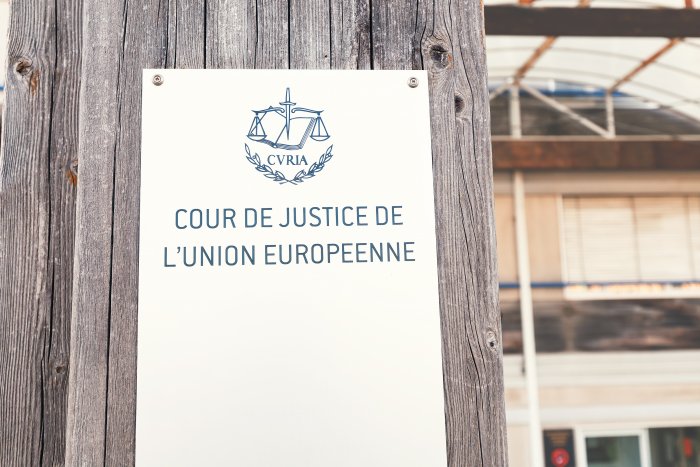30 Years of Developing Relations, Building Connections, and Sharing Knowledge

Zoltán Szabó
Photo by Lázár Todoroff / AmCham
AmCham Hungary president Zoltán Szabó discusses the inheritance of the chamber’s American roots and the impact those still have on its work today with the Budapest Business Journal.
BBJ: AmCham today is a multinational chamber but has solid American roots. How would you characterize the U.S. influence on the Hungarian economy today?
Zoltán Szabó: Despite the rising investment from the Far East, the United States remains one of Hungary’s most important foreign investors and a significant source of job creation. The share of high value-added investments has also been increasing in recent years, especially in the ICT sectors, the service sector, business service centers, logistics, and research and development projects. In addition, American businesses drive sustainability initiatives, introduce advanced technologies to increase productivity, are vocal on social issues, and, overall, have had a significant influence on our business values.
BBJ: AmCham is famous for its American-themed events, from the Fourth of July Family Day and Thanksgiving to the Super Bowl Watch Party to the four-yearly U.S. Election Party (sadly canceled by COVID last year). What do you think is the enduring attraction of these events?
ZSz: These events strengthen our community and cherish our American roots and values; they have been staples in our event calendar for decades. Besides giving the members great networking opportunities, they also allow us to step away from the daily grind to relax and have fun. We cannot wait to bring them back.
BBJ: What percentage of your current membership is taken up by American-based businesses? How has this changed over the years, and what might that say about the developing economy?
ZSz: About a third of the membership is American; it has been steady at this level. Most of these companies are long-term members, some since the foundation of the chamber. This signals a firm commitment not just to AmCham but to the country. Back in 1989, the founding members established the chamber to develop relations, build connections, share knowledge, and work together to make a better place to succeed. That’s still the core of our activities, but we are proud to serve a diverse, international community now, comprising corporations and SMEs. These businesses are here for the long run, and AmCham gives them the chance to make a difference, to define and discuss the most pressing challenges with other companies and policymakers.
BBJ: What most worries your American members about doing business in Hungary? What are the main concerns?
ZSz: The number one concern, as always, is the availability of a highly skilled workforce. One side of the workforce issue is education. We need to transform the system to equip people with the skills and competencies they need to succeed and grow in a dynamically and rapidly changing world and support our country’s transformation from manufacturing to innovative, higher added-value products and services. This requires a major overhaul on all fronts: the allocation of funds, the scope of education, digital literacy, STEM education, language skills, research and intellectual property rights, career orientation, business and university cooperations, the future of the teaching profession, their training, you name it.
The other side of the issue is a more flexible and modernized regulatory environment that embraces remote working and other atypical work forms which grew during COVID-19 and could help businesses access the untapped potential in our labor reserve. COVID-19 also put the supply chains to the test; we need to make sure we build a more substantial, more resilient SME base.
Another growing concern is the proposed global minimum tax that could change the investment landscape. For investors, one of the most attractive factors in Hungary is the 9% CIT, one of the lowest in the world. This could have significant implications for businesses operating in Hungary. We address these issues and other challenges critical to our country’s competitiveness in our new strategic guideline, the Policy Agenda 2021-2025, and the “Cooperation for a More Competitive and Sustainable Hungary” recommendation package. These are based on insights from members, categorized into three strategic areas: Smart Growth, Business Environment, and Human Capital.
BBJ: The chamber has a close working relationship with the U.S. Embassy. Is that harder to manage in periods like now, where there is no incumbent ambassador in the post?
ZSz: We do maintain a good working relationship with the embassy, regularly consulting on economic matters. Even though there is no incumbent, Chargé d’Affaires Marc Dillard and his team are most capable and always ready to support us. We are eager to find out who the next U.S. Ambassador to Hungary will be. Historically, ambassadors are regulars on the AmCham podium; in fact, the chamber is one of the few public forums where the U.S. Ambassador and their Hungarian counterpart sit down together for a discussion.
BBJ: COVID-19 forced businesses to take meaningful steps to adapt, rethink processes and become resilient. How did the pandemic impact AmCham?
ZSz: Like every other business, we had to adapt to the rapid and drastic changes brought by COVID-19, but more than that, we committed to improving and renewing. AmCham’s role as a knowledge sharing and cooperation platform became more crucial than ever with the pandemic. We did not skip a beat: every committee and working group continued working online, we managed to hold our events online or in a hybrid format. Since the outbreak last March, we have represented our members at weekly strategic meetings with the government and posted several recommendations based on their insights and experiences to support the economic relief efforts, many of which were implemented.
What is more, when we introduced the Policy Agenda earlier this year, we decided to re-vamp the way we work to become more effective and to provide more opportunities for members to get involved and drive the advocacy work to deliver more tangible results. Of course, we were fortunate in being able to rely on a committed membership that stuck by us despite the hardships of the past 16 months. We hope that the way we work and the world around us will get back to normal soon. We are excited to meet and work with our membership again in person.
This article was first published in the Budapest Business Journal print issue of July 2, 2021.
SUPPORT THE BUDAPEST BUSINESS JOURNAL
Producing journalism that is worthy of the name is a costly business. For 27 years, the publishers, editors and reporters of the Budapest Business Journal have striven to bring you business news that works, information that you can trust, that is factual, accurate and presented without fear or favor.
Newspaper organizations across the globe have struggled to find a business model that allows them to continue to excel, without compromising their ability to perform. Most recently, some have experimented with the idea of involving their most important stakeholders, their readers.
We would like to offer that same opportunity to our readers. We would like to invite you to help us deliver the quality business journalism you require. Hit our Support the BBJ button and you can choose the how much and how often you send us your contributions.








